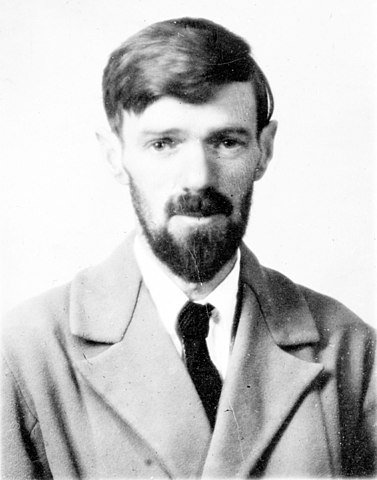Like most highly intelligent people, D.H. Lawrence views the world from conflicting perspectives, often on the same subject. After all, the ability to see both sides of an argument is a sign of a rational mind with strong critical thinking skills. However, Lawrence’s views on politics, economy and social discourses reveal his disdain for modern society. He is critical of the developments democracy, industrialism, urbanism and even liberalism. And yet, he frequently takes positions that are quite consistent with modern liberalism. It would take a monumental amount of effort to analyse Lawrence’s entire world view, so we’ll limit our discourse on his specific views on the following subjects.
1. D.H. Lawrence on Feminism
Lawrence has a complicated relationship with feminism. While he was hailed as an advocate of the movement early in his career, scrutiny of his writings by second-wave feminism and especially third-wave feminism has led to a different conclusion. Women activists Hélène Cixous and Luce Irigaray believed that he is a passionate believer of the "supremacy of the male.
However, a correspondence, dated April 1924, unearthed by Nottingham University English lecturer Dr Andrew Harrison in the private collection of John Middleton Murry, showed that Lawrence was a stout defender of women. Dr. Harrison further argued that while Lawrence’s characters in Sons and Lovers may have voiced scepticism towards women suffrage, he was probably just voicing out the prevailing attitude over the issue at the time.
2. D.H. Lawrence on Politics
Lawrence is very critical of industrialisation, and has equated it with democracy and capitalism. He felt the three factors tend to demoralise men while destroying their individuality. As a result, he believes that this creates a mob-like culture where war is one of its natural manifestations. However, true to his contrary nature, Lawrence’s solution is a mix of socialism and fascism, where unelected supreme leaders govern a country with an iron hand while redistributing its wealth equally among the citizenry.

Lawrence has frequently spoken about an utopian world. In fact, at the age of 17, he discussed it quite considerably with his muse, Jessie Chambers. Lawrence did try, and failed, to create two Utopian communities, called Rananim, in New Mexico and Oxfordshire.
An undated passport photo of D.H. Lawrence. Image courtesy of Wikimedia Commons
3. D.H. Lawrence on Nature
Lawrence has a very Oriental perspective on nature and the world we live in. His viewpoints are frequently at odds with conventional Christian and Western beliefs, which caused many in the literally world to mock him.
Lawrence views on individualism, integrity, wholeness, and the transcendental parallels closely to that of Taoism. This is the most likely explanation for his contempt of mechanisation, sciences and modern life in general.
4. D.H. Lawrence on Religion
Lawrence is an agnostic, not an atheist – a distinction he was at pains to make. He calls himself a Pragmatist of the William James sort. His rejection of the Congregationalist faith of his family became apparent to all in 1908 when he criticised the minister of Eastwood, the Reverend Robert Reid, to Jessie Chambers and her family while walking back from church. However, his conversion probably occurred earlier as he was engaged in a heated scholarly debate with Reverend Reid a year earlier.